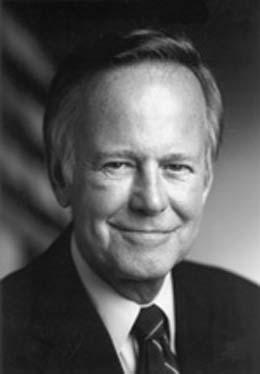On November 4, 1986, Democratic Congressman Brock Adams (1927-2004) wins election as U.S. Senator over incumbent Republican Slade Gorton (b. 1928). Democrats take control of the U.S. Senate from the Republicans and retain control over the U.S. House of Representatives. The state legislature remains in Democratic hands. In Seattle, voters toss out a "city of refuge" city council measure in a rejection of municipal involvement in foreign policy.
Gorton had served one six-year term in the Senate and Adams had been a Congressman for 12 years. In conceding victory to Adams, Gorton vowed not to seek elective office again. A centerpiece of Adams' campaign was a Reagan Administration proposal to establish a nuclear waste disposal facility at Hanford in Eastern Washington, which Gorton supported.
Refugee Concerns Voted Out of City Government
In 1985, the Seattle City Council had passed a resolution directing city workers, including police, not to use a person's refugee status as a consideration in routine dealings with the public. A yes vote on Initiative 30 eliminated this requirement and further required city workers and officials to "avoid diversions of their time and city money for the consideration of foreign policy and immigration matters." The mayor's Citizen's Commission on Central America, established by voters in 1983, was dissolved. Seattle's involvement in sister-city relations was limited to purely cultural rather than political matters.
Official election results were as follows:
- U.S. Senator
- Slade Gorton (R) - 650,931
- Brock Adams (D) - 677,471

